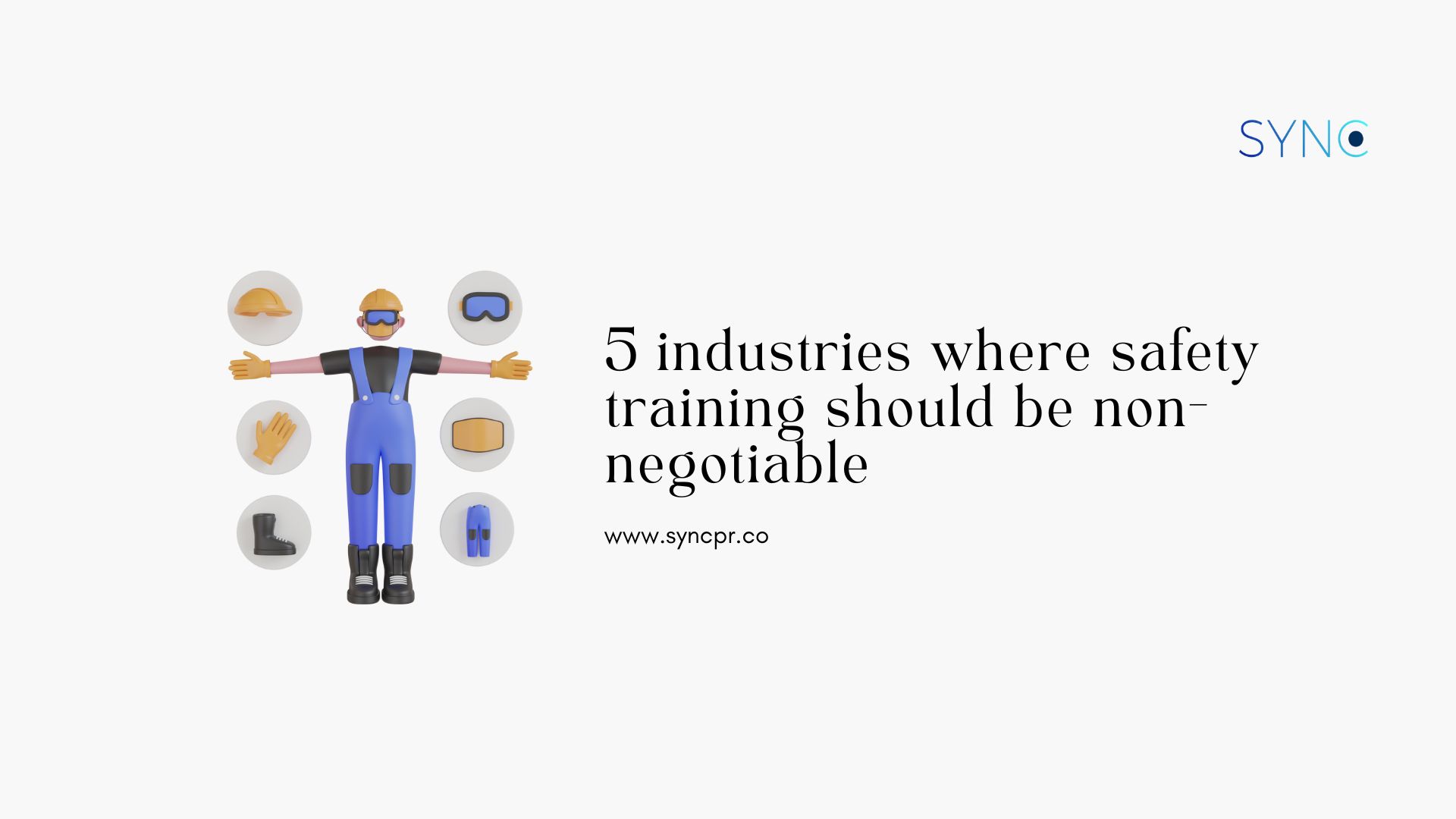Before any job starts, people should know how to do it safely. This matters in every type of work, but some jobs have bigger risks. They involve tools, machines, or fast-moving tasks that can cause harm if safety is not followed.
This is why all businesses should add safety training as part of the job. It helps workers avoid mistakes, follow rules, and stay prepared each day. In busy places like New York, where rules are strict and checks happen often, this becomes even more important. When workers are trained well, they feel more confident, and projects move without delays.
This article looks at five types of work where safety training should never be skipped. These jobs need strong safety steps from the start.
Construction: safety starts with preparation
This field involves real risk. People work at heights, use power tools, and move through crowded sites. One small error can lead to injury or stop the entire job. In cities like New York, there are strict safety rules from the DOB and OSHA that builders must follow.
To stay prepared, many teams rely on professional services that provide NYC Safety Training programs and support. Enrolling in these programs guides workers through required certifications, helps issue SST cards, and prepares them for city checks. They also offer trained safety staff who visit job sites, watch for common risks, and keep things on track. With the right help, builders can avoid delays, minimise harm, and meet every rule that applies.
Manufacturing: keep speed and safety aligned
In this line of work, things move fast. Machines don’t slow down, and neither do deadlines. That makes safety even more important. Sharp tools, heavy parts, and hot surfaces are part of daily tasks. Untrained staff might not know how to stay away from danger or fix an issue.
Daily safety briefings minimise injuries and downtime. Small steps, repeatedly demonstrated, enable individuals to work more efficiently and more securely. When new tools are added or staff changes are made, training needs to be updated. Startups in this space should build a habit of safety early on. It’s easier to fix habits now than later, when the team is bigger and issues are harder to track.
Transport and logistics: plan for safe movement
Getting items from one place to another sounds simple, but there’s more to it. There’s traffic, weather, and hours of driving for drivers. Lifting, sorting, and loading with hazards, too, in the warehouse. With poor safety plans, individuals get injured, and there are delays.
Training makes a clear difference. It teaches safe lifting, alert driving, and what to do when problems come up. Teams also learn how to spot issues before they happen. For startups managing fleets or running fast deliveries, safety cuts down on mistakes. It also builds trust with clients who want goods handled with care. A solid plan now prevents costly problems later.
Energy work: protect from serious hazards
Employees in these industries frequently experience heat, pressure, and hazardous substances. The work may be outdoors, far below the Earth’s surface, or close to equipment. This increases the call for protection even more. A misstep here injures not just one individual but destroys a whole location.
Training for these kinds of roles needs to be precise. It needs to cover operating equipment, handling crisis situations, and adherence to stringent regulations. These workers also need to be trained in terms of inspection for safety, licensing, and procedures for equipment failure. Startups need to invest the time in doing things correctly. When safety is integrated into work in advance, risks are minimised, as is distrust.
Healthcare: keep staff and patients safe
Care teams do more than treat patients. They lift, move, and handle sharp or risky items. They also face long hours and stressful situations. These factors can lead to injuries if safety is not made part of their daily work.
Training should cover both patient care and worker safety. Staff should know how to avoid strain, deal with spills, and handle tools the right way. When emergencies happen, they should be ready to act fast and follow the right steps. For startups in health services, clear safety habits can protect the team and the people they care for. This also builds a better place to work and improves the quality of care.
Conclusion
Working safely is not a bonus. It’s a must. These five fields show that training helps teams do more with less risk. It saves time, money, and lives. Startups that act early avoid bigger issues later on. With the right systems and support, teams stay strong and ready for whatever the day brings. When safety is built in from the beginning, the results are better for everyone: clients, workers, and the business itself.
If you have a topic to be featured on our platform, reach out to us here.

